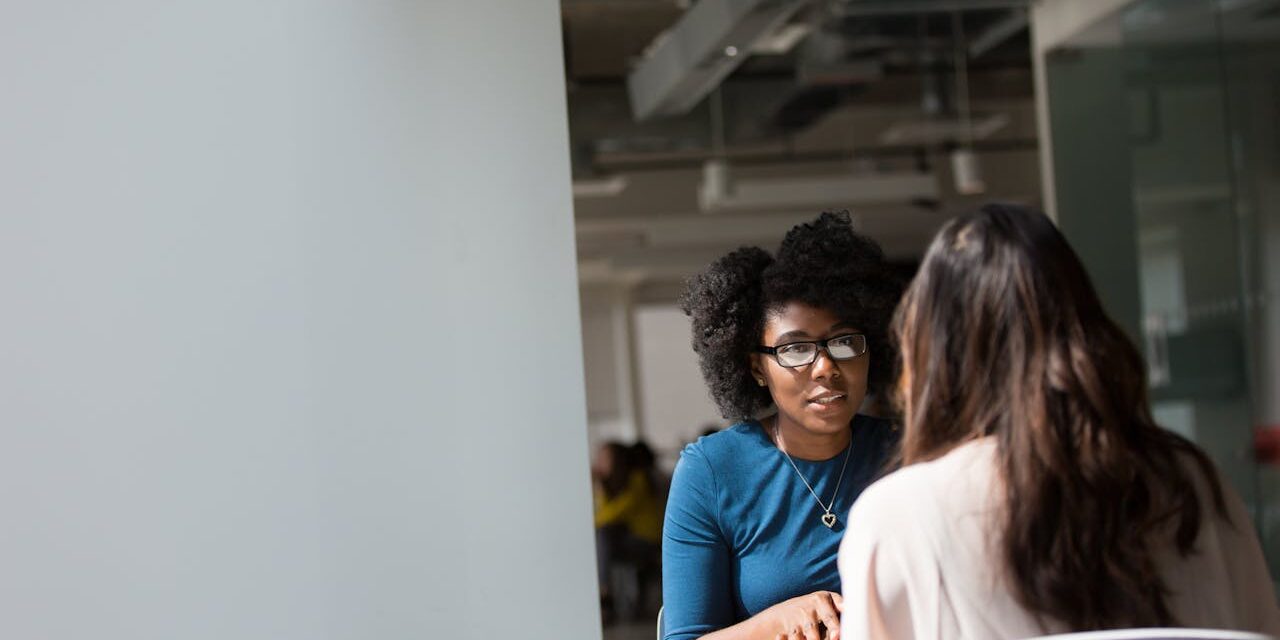The job interview is often the most nerve-wracking part of the job search process.
It’s natural to feel anxious about meeting a potential employer and trying to impress them in a short amount of time. You can feel more confident and better equipped to showcase your skills and qualifications with proper preparation.
Now, let’s train for a successful job interview!
Table of Contents
Research the company and the job
Before entering the door, you must do your homework on the interviewing company.
Look up information about their history, mission, products or services, and culture. Understanding the company and its values better will help you tailor your answers to the interviewer’s questions.
In addition to researching the company, it’s also a good idea to review the job posting and list the required skills and qualifications. A review will give you an understanding of what the company is looking for in a candidate and help you emphasize your unique and relevant experience.
Finally, try to familiarize yourself with industry terminology and trends.
Demonstrate your knowledge and enthusiasm for the field and show the interviewer that you are committed to staying up to date in your profession.
Review common interview questions
While it’s impossible to predict the exact questions the interviewer will ask, a few tend to come up in most job interviews. These include:
- “Tell me about yourself.”
- “Why do you want to work for our company?”
- “What are your strengths and weaknesses?”
- “Describe a time when you faced a challenge at work and your remedy to deal with the problem.”
Reviewing these questions and practicing answering them out loud is a good idea to make you more comfortable and confident during the interview.
When answering these questions, it’s helpful to use the STAR (Situation, Task, Action, Result) method to structure your answers. Describe the specific Situation or Task you faced, the Action you executed, and the Result of your action.
In addition to describing your experience, emphasize your achievements and how they align with the job requirements.
Focusing on your strengths and how they will benefit the company is vital. However, when discussing your weaknesses, be honest and show that you are aware of them and actively working to improve.
Prepare questions to ask the interviewer
Asking thoughtful questions shows your interest in the company and the job. It can also give you a better understanding and familiarity with working there.
Some ideas for questions to ask include:
- What are the company’s current key challenges, and how does this role fit into the larger strategy to address them?
- Can you tell me more about the company culture and what it’s like to work here?
- How do you support employee development and growth within the company?
It’s a good idea to prepare a list of questions in advance, but try to avoid asking about salary, benefits, and vacation time.
You can address these topics later in the hiring process.
Dress for success
First impressions are critical, and your dress can reveal a lot about your professionalism and attention to detail.
Wear a professional outfit appropriate for the company’s culture and industry. For example, a suit and tie would be fitting if you’re interviewing at a law firm, while a tech startup might have a more casual dress code.
Arrive on time and be ready to engage
Arriving on time for the interview shows that you value the interviewer’s time and are serious about the opportunity. Plan your route ahead of time and allow for extra travel time in case of delays. It’s better to arrive early than to be rushed and stressed when you arrive.
When you arrive at the interview, bring copies of your resume, references, and other relevant documents. Greet the interviewer with a confident handshake and make eye contact.
Remember to smile, be friendly, and maintain a professional demeanor.
Follow up after the interview
After the interview, write and send a thank-you email to the interviewer within 24 hours.
This polite gesture can help you stand out from other candidates. In the email, mention specific points from the interview and reiterate your interest in the job. You can also include any additional information or examples that may have come up during the conversation.
If you are still waiting to receive communication back from the company within a week or two, follow up and ask about the status of your submitted application. However, avoid being too persistent or contacting the company frequently.
Good luck with your job interview!
By reviewing these steps and preparing, you can feel more confident and better equipped to succeed in your job interview.
Remember to stay positive and be yourself.
The interviewer is looking for someone who is a good fit for the company and the role, and the best way to show that you’re the right candidate is to be genuine and authentic.
What are the signs of a successful job interview?
These are six signs that may indicate that you had a successful job interview:
- The interviewer appeared interested in what you had to say and asked follow-up questions.
- The interviewer seemed impressed by your qualifications and experience.
- The interviewer had a positive attitude and was friendly and engaging.
- The interviewer provided detailed information about job duties, responsibilities, and company culture.
- The interviewer gave you a clear understanding of the next steps in the hiring process.
- The interviewer thanked you for your time and expressed interest in your continued interest in the position.
Of course, it’s essential to remember that every interview is different, and it can be challenging to gauge how well it went.
If the conversation went in a good direction and the interviewer was receptive to your qualifications, it’s a good sign the interview was successful.





